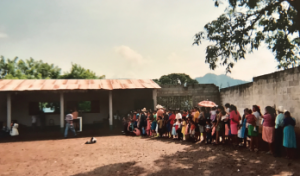For Daniel Albert, MD, a rheumatologist with the Dartmouth-Hitchcock Medical Center in Lebanon, N.H., some of his most defining medical experiences haven’t taken place within his practice, but in exotic locales such as a rainforest on the island of Borneo.
One of many physicians across the world who volunteer their time and expertise on medical missions, Dr. Albert recently wrote a book about his experiences, titled Volunteer, and he says the broad training rheumatologists receive in internal medicine and their ability to look at patient problems in an analytic manner make them great candidates to serve on medical missions.
“My first medical mission was in 1978, and since then I’ve participated in a dozen missions all over the world,” Dr. Albert says. “Each one is unique, and the work varies based on the country and the organization hosting the mission.”
Medical missions are typically offered in developing countries that have a shortage of physicians, and in areas that offer little access to healthcare. Dr. Albert says in some countries, rheumatologists may work in more of a primary care capacity, and in others, doctors specifically treat patients with rheumatic diseases. Many missions also use physicians as teachers and mentors, relying on them to share their expertise with doctors and medical students in the country they visit.
According to Dr. Albert, medical missions offer rheumatologists a different perspective on patient care, and allow them the opportunity to explore different cultures, gain a renewed energy for their profession and meet medical colleagues from all over the world. “You get to work with people you might never otherwise meet,” Dr. Albert says. “Serving on a medical mission is a valuable experience, and I think it makes you both a better person and doctor.”

Dr. Mallay has worked numerous missions in Central America.

During a volunteer mission in Guatemala, people lined up for hours to see a doctor.
The most common medical conditions seen on missions include hypertension, arthritis, asthma, migraines and diabetes, but Dr. Albert says doctors also treat medical conditions not typically seen in the U.S. “In Africa, for example, we saw patients with malaria, meningitis, pneumonia and infectious diseases, such as yellow fever,” he says.
Rheumatic diseases, such as rheumatoid arthritis (RA), also commonly occur in developing countries. A study published in the South Sudan Medical Journal found that “in countries where medical resources are limited, recognition and aggressive management of patients with RA may lag behind the treatment of infectious diseases associated with high mortality, such as malaria, tuberculosis, HIV and cholera.”1



